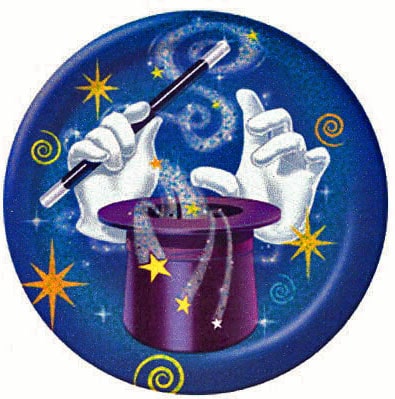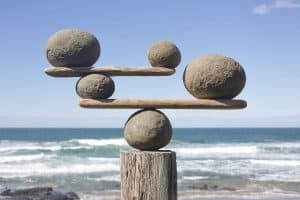 In the last few years, it seems to me that there’s been a lot of ballyhoo about “ration balancers,” which, as the name indicates, are supposed to help balance your horse’s ration. That’s all well and good, I suppose, but the circularity of the opening sentence should raise a bit of concern, at least linguistically, if not nutritionally. So, I thought it might be interesting to look into the concept of what a “balanced” diet means for your horse. It sounds good, I guess, but there’s reason to wonder if there might be a bit less to the concept than meets the eye (or stomach, I guess).
In the last few years, it seems to me that there’s been a lot of ballyhoo about “ration balancers,” which, as the name indicates, are supposed to help balance your horse’s ration. That’s all well and good, I suppose, but the circularity of the opening sentence should raise a bit of concern, at least linguistically, if not nutritionally. So, I thought it might be interesting to look into the concept of what a “balanced” diet means for your horse. It sounds good, I guess, but there’s reason to wonder if there might be a bit less to the concept than meets the eye (or stomach, I guess).
WHAT IS BALANCE ANYWAY?
Horse people – well, people in particular – seem to be pretty obsessed with trying to make sure things are “balanced.” Be it the mouth, the hooves, the riding style, or the diet, balance is something to be unquestionably and unequivocally desired (which is, in itself, often a reason to be concerned about something).
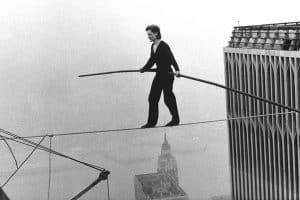 But first, we have to come up with a definition of “balance.” After looking around in some dictionaries, I’ve decided to define the term, “Balance” as, “Having everything in correct proportions,” or something like that. Of course, there’s definitely a place in the world for balance. Take see-saws. If you’re unbalanced, you’re either up in the air or stuck on the ground. If you’re walking on a tightrope, good balance is especially important, I think, particularly if the rope is high in the air and you don’t have a net underneath you. I get the tires on my truck balanced so that they will roll smoothly and so that the tread will last longer. I can adjust the balance on my truck stereo speakers so that I’m not only hearing out of one ear. You get the point. Sometimes balance is good, but there’s usually a particular meaning associated with the term.
But first, we have to come up with a definition of “balance.” After looking around in some dictionaries, I’ve decided to define the term, “Balance” as, “Having everything in correct proportions,” or something like that. Of course, there’s definitely a place in the world for balance. Take see-saws. If you’re unbalanced, you’re either up in the air or stuck on the ground. If you’re walking on a tightrope, good balance is especially important, I think, particularly if the rope is high in the air and you don’t have a net underneath you. I get the tires on my truck balanced so that they will roll smoothly and so that the tread will last longer. I can adjust the balance on my truck stereo speakers so that I’m not only hearing out of one ear. You get the point. Sometimes balance is good, but there’s usually a particular meaning associated with the term.
 However, sometimes the term is kind of meaningless: even invented, or misguided. It ends up being be used as a synonym for “Something you don’t have but feel like you should have but may not,” or something like that. Take, for example, the idea of “work-life balance.” Just the right amount of work and not work seems to be a particularly elusive goal. It’s more likely you have too much of one or the other, but the “right” amount always remains elusive and is very much a matter of what’s “right” for you. It’s much more likely that at any particular point in time, you’ll have too much or too little of one thing or the other, but things usually work out in the end. Actually, horse nutrition is kind of like that, too.
However, sometimes the term is kind of meaningless: even invented, or misguided. It ends up being be used as a synonym for “Something you don’t have but feel like you should have but may not,” or something like that. Take, for example, the idea of “work-life balance.” Just the right amount of work and not work seems to be a particularly elusive goal. It’s more likely you have too much of one or the other, but the “right” amount always remains elusive and is very much a matter of what’s “right” for you. It’s much more likely that at any particular point in time, you’ll have too much or too little of one thing or the other, but things usually work out in the end. Actually, horse nutrition is kind of like that, too.
WHAT IS A BALANCED DIET?
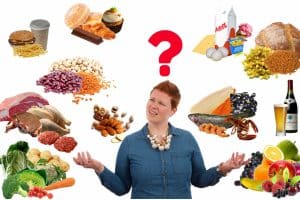 It’s hard to find a definition of a “balanced diet” in horses, but they abound for people. According to the National Health Service in the UK, a balanced diet, “Means eating a wide variety of foods in the right proportions, and consuming the right amount of food and drink to achieve and maintain a healthy body weight.” According to Medical News Today, “A balanced diet fulfils all of a person’s nutritional needs. It comprises foods from five groups — including vegetables, protein, and whole grains — and can help manage weight and reduce the risk of disease.” Lastly, the New York Times says a balanced diet is about, “… getting the right types and amounts of foods and drinks to supply nutrition and energy for maintaining body cells, tissues, and organs, and for supporting normal growth and development.” Not much to argue about there, I suppose. It seems to me that for humans anyway, “balance” is mostly about getting enough calories to maintain a healthy weight from a variety of foods, along with the requisite vitamins and minerals.
It’s hard to find a definition of a “balanced diet” in horses, but they abound for people. According to the National Health Service in the UK, a balanced diet, “Means eating a wide variety of foods in the right proportions, and consuming the right amount of food and drink to achieve and maintain a healthy body weight.” According to Medical News Today, “A balanced diet fulfils all of a person’s nutritional needs. It comprises foods from five groups — including vegetables, protein, and whole grains — and can help manage weight and reduce the risk of disease.” Lastly, the New York Times says a balanced diet is about, “… getting the right types and amounts of foods and drinks to supply nutrition and energy for maintaining body cells, tissues, and organs, and for supporting normal growth and development.” Not much to argue about there, I suppose. It seems to me that for humans anyway, “balance” is mostly about getting enough calories to maintain a healthy weight from a variety of foods, along with the requisite vitamins and minerals.
NOTE: In humans, you might get a bit of pushback on the need for a variety of foods, say, from lactose-intolerant folks who eschew dairy, or vegetarians who shudder at the thought of a hamburger, or those that insist that gluten is the spawn of the devil, so no wheat for them. Regardless of the philosophy and lack of balance, those folks can be healthy, too.
SO WHAT IS A BALANCED DIET FOR A HORSE?
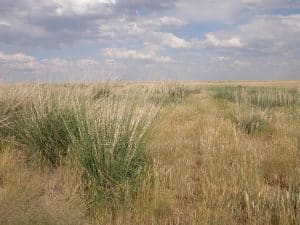
Nutritional smorgasbord
Understanding that the “balance” references are human diets, for horses, the concept is pretty much the same thing, I think. You want your horse to get everything he needs so that his body functions healthily and that he maintains a good weight. But does that require any sort of particular attention to “balance?” Read on.
One big difference between horses and humans is that, for people, a variety of foods is usually recommended. If we look to wild horses for answers about balance, we find that horses actually eat a variety of stuff that would, by the assessment of just about any nutritionists be considered fairly “low-quality: grasses, seed heads of grasses, weeds, shrubs, bits of trees, and other plants. They eat what they can find, when and where they can find it. So, if you’re thinking that a variety of foods is what your horse needs for balance, it might be time to fire up the hedge trimmer (NOTE: I’m not suggesting that you do this). Or, you could consider some of the things people give horses around the world that may not be popular where you are (CLICK HERE).
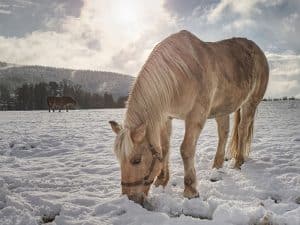
Less nutritious – not fatal
Another thing to consider about wild horses is that they are almost undoubtedly NOT always meeting all of their nutritional needs, especially in winter. Curiously, they are also not dropping like flies from the lack of daily attention to their aluminum requirements. What they are doing is eating a lot – they have the food they forage pretty much constantly going through their digestive tract. Nobody talks about the “quality” or “balance” of the diet of a wild horse: quantity is the thing for them.
From an evolutionary perspective, it doesn’t make any sense at all that if would have to be difficult for a horse to fill its nutritional needs on those relatively poor-quality feeds that made up a “balanced” diet. I mean, if it was hard, wild horses would have just died out. Instead, they thrived. They didn’t thrive because they had some sort of sense of daily “balance” they were looking for, no, they thrived precisely because it was EASY for them to fulfill their nutritional needs.
It still is.
IF NOT VARIETY, THEN WHAT DO YOU NEED TO BALANCE?
Since a “balanced” variety of feeds doesn’t seem to be an important part of a domestic a horse’s diet, then surely the concept of 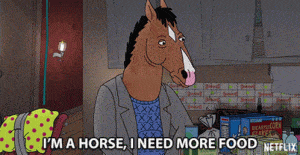 “balance” has to center around making sure that the horse gets everything that he needs, nutritionally speaking, at least eventually. Filling a horse’s nutritional needs is a good idea, to be sure, but like wild horses, it’s not something that needs to be obsessed over every day.
“balance” has to center around making sure that the horse gets everything that he needs, nutritionally speaking, at least eventually. Filling a horse’s nutritional needs is a good idea, to be sure, but like wild horses, it’s not something that needs to be obsessed over every day.
As with humans, the most important consideration when it comes to nutritional “balance” is that the horse be kept at a good weight (generally said to be where you can’t see the horse’s ribs, but you can feel them easily). To be frank, this goal seems to be considerably more challenging for some folks that others, as evidenced by the fact that obesity seems to be a bit of a problem in domestic horses, but that’s not really the horse’s fault; domestic horses eat what they are allowed to eat, and they like to eat all the time. They came up with the phrase, “Eating like a horse” for a reason.
HOW EASY IS IT FOR AN ADULT HORSE TO FULFILL ITS NUTRITIONAL NEEDS?
Well, actually, very easy. Here are some examples.
- If he’s at a good weight he’s getting enough calories
- If he eats anything green, he’s getting enough vitamin A
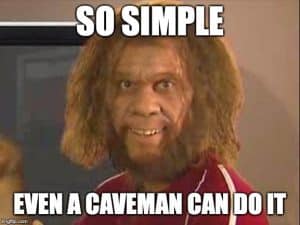 It’s impossible to make a horse deficient in any of the B-vitamins (the gut bacteria do the work)
It’s impossible to make a horse deficient in any of the B-vitamins (the gut bacteria do the work)- It’s impossible to make a horse deficient in Vitamin C (he makes his own)
- If he sees the sun, he’ll get enough Vitamin D
- He likely gets enough Vitamin E, unless he’s constantly getting brown, low-quality forage. Even so, he can store enough Vitamin E to last six months or so (CLICK HERE)
- If the feed is decent quality, he’ll get enough protein
- Most decent quality forages have enough vitamins and minerals
- If he’s getting enough forage, he’ll get enough fiber
- Horse feeds normally contain plenty of salts (also known as electrolytes)
- He will need to have access to water
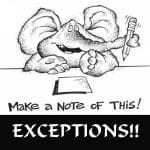 To be sure, there are some special circumstances. Babies need extra calories (per pound) and extra protein to grow. They need to have their calcium and phosphorus levels in a broadly proportional range but not necessarily in any precise “balance.” Lactating mares need extra calories: so do horses that exercise heavily. Neither needs extra vitamins and minerals. Mostly, life activities may cause your horse to need more calories, in which case, you might need to feed him more. However, even when it comes to nutrients, the quest for some sort of precise daily “balance” is mostly pointless. Horses don’t need precise amounts of every single nutrient every day. If they don’t get enough one day, they are likely to make up for it the next. You decide to eat a cheese pizza one night – you can have a salad tomorrow and you’ll still be OK in the long run.
To be sure, there are some special circumstances. Babies need extra calories (per pound) and extra protein to grow. They need to have their calcium and phosphorus levels in a broadly proportional range but not necessarily in any precise “balance.” Lactating mares need extra calories: so do horses that exercise heavily. Neither needs extra vitamins and minerals. Mostly, life activities may cause your horse to need more calories, in which case, you might need to feed him more. However, even when it comes to nutrients, the quest for some sort of precise daily “balance” is mostly pointless. Horses don’t need precise amounts of every single nutrient every day. If they don’t get enough one day, they are likely to make up for it the next. You decide to eat a cheese pizza one night – you can have a salad tomorrow and you’ll still be OK in the long run.
SO WHAT ABOUT “RATION BALANCERS?”
Oh, right. I mean, I guess they’re fine. Ration “balancers” or vitamin and mineral supplements or fortified nutritional products don’t seem to be likely to hurt your horse; at least there are no widespread reports of harm. “Ration balancers” are given along the same rationale as are vitamin and mineral supplements in people, a sort of “nutritional insurance” (also known as, “Just in case”).
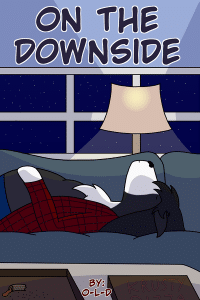 But here are some other things to think about.
But here are some other things to think about.
- The global vitamin supplements market size was valued at $47.9 billion in 2021, and is projected to reach $98.6 billion by 2031, according Allied Market Research (CLICK HERE) I don’t know of any equivalent research in horses, but I’d bet that it’s a lot.
- In humans, vitamin and mineral supplements tends to lead to excessive intakes of vitamins and minerals (“Out of balance” in the wrong direction, I think). In fact, I did a study showing this in several horse supplements about a bit more than a decade ago (CLICK HERE).
- In humans, several studies have evaluated the link between vitamin and mineral supplements and many different health outcomes, including cancer, heart disease, osteoporosis, pulmonary diseases, and mortality. Most have not found an effect of vitamin and mineral supplement use on any of the health outcomes measured.
Again, when it comes to humans, according to the US government’s 2020–2025 Dietary Guidelines for Americans, “Because foods provide an array of nutrients and other components that have benefits for health, nutritional needs should be met primarily through foods. … In some cases, fortified foods and dietary supplements are useful when it is not possible otherwise to meet needs for one or more nutrients (e.g., during specific life stages such as pregnancy.” If you’ve got some time, and you really want to take a deep dive into what is known about vitamin and mineral supplements in humans (CLICK HERE)
HERE’S WHAT I’D LIKE YOU TO THINK ABOUT: A “HEALTHFUL” DIET
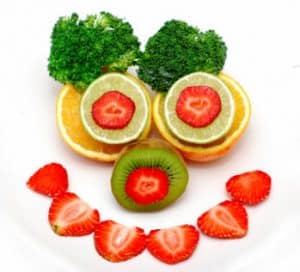 Rather than fretting about giving your horse some precise amount of nutrients every single day out of some inconsequential pursuit of “balance,” and buying a whole bunch of products that they can help you do it, how about thinking about just making sure that your horse has a “healthful” diet? How about making sure that he has enough good quality feed to maintain a healthy body weight? How about making sure that the hay isn’t dusty or moldy, and is green and smells nice? How about trying to make sure that he eats more frequently, rather than giving him one or two big meals every day? How about reducing or eliminating grain concentrates, which can cause all sorts of problems in horses, especially when fed to excess. How about letting him out on pasture on occasion (assuming you have access to it – not everyone does) or at least letting him run around from time to time? How about making sure that he’s got free access to clean water? If you do those things it’s pretty unlikely that your adult horse will ever need much of anything else.
Rather than fretting about giving your horse some precise amount of nutrients every single day out of some inconsequential pursuit of “balance,” and buying a whole bunch of products that they can help you do it, how about thinking about just making sure that your horse has a “healthful” diet? How about making sure that he has enough good quality feed to maintain a healthy body weight? How about making sure that the hay isn’t dusty or moldy, and is green and smells nice? How about trying to make sure that he eats more frequently, rather than giving him one or two big meals every day? How about reducing or eliminating grain concentrates, which can cause all sorts of problems in horses, especially when fed to excess. How about letting him out on pasture on occasion (assuming you have access to it – not everyone does) or at least letting him run around from time to time? How about making sure that he’s got free access to clean water? If you do those things it’s pretty unlikely that your adult horse will ever need much of anything else.







